MFA THESIS
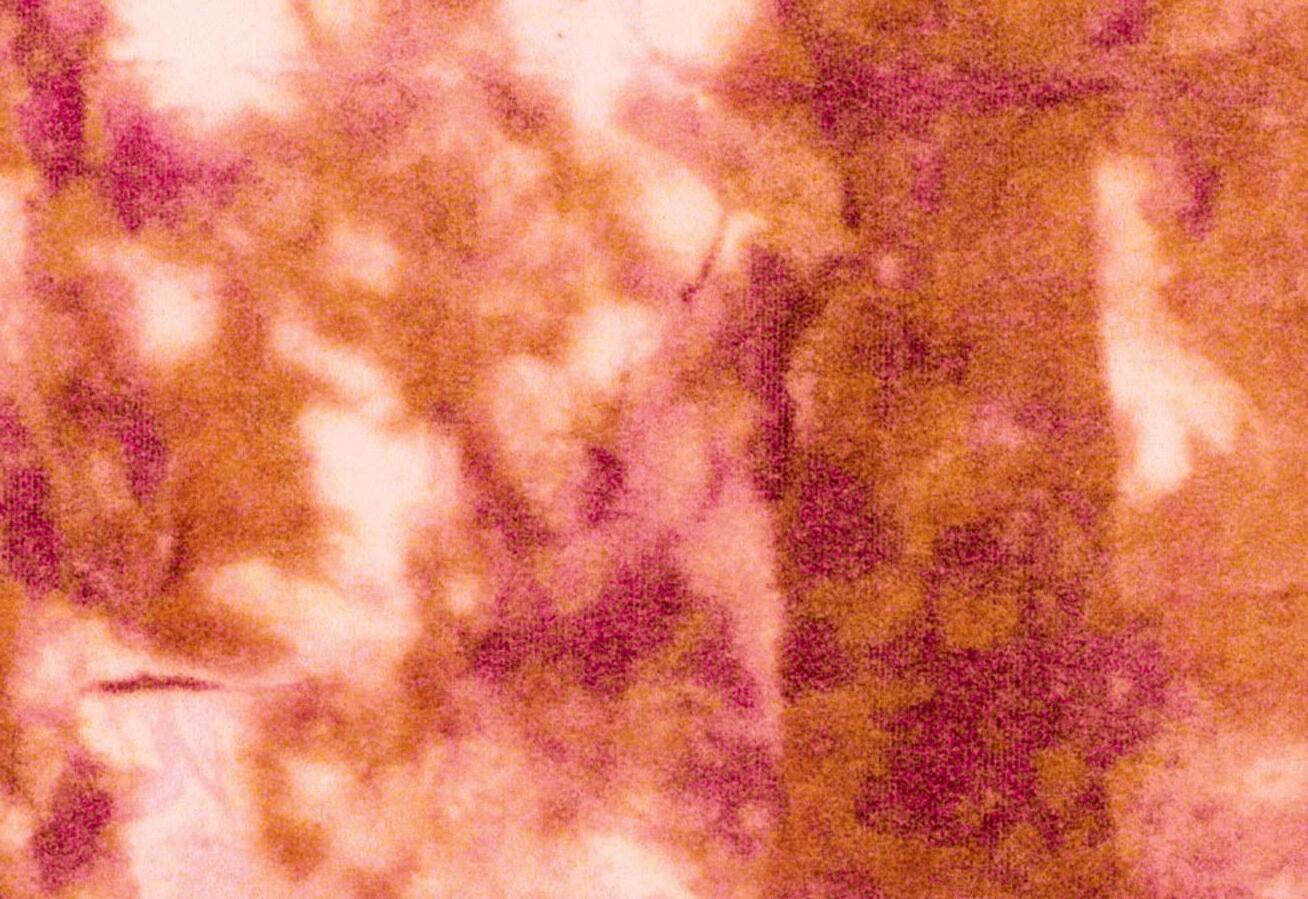




College of Visual and Performing Arts
Rubén Graciani, Dean
The Graduate School
Linda Thomas PhD, Dean
School of Art, Design, and Art History
MiKyoung Lee Director
Duke Hall Gallery of Fine Art
Beth Hinderliter PhD, Director
SADAH Graduate Program
Corinne Diop, Director
Mia Greenwald
Allyson Mellberg Taylor, Chair
Kyle Hackett
Rob Mertens
Hannah Sions PhD
Hannah Patteson
Greg Stewart, Chair
Dymphna de Wild
Beth Hinderliter PhD
This catalog documents the 2023 MFA Thesis Exhibitions by Mia Greenwald and Hannah Patteson. It is the culmination of their intense creative inquiry that included skill-building, conducting historical research, connecting the theoretical underpinnings, challenging assumptions, risk taking, digging deeper, writing, thinking, sharing, discussing—and making, making, making. While the photographs and text work in retelling their stories, the exhibitions fall in the category of “you really had to be there”.
The galler y was divided in two, creating two solo exhibitions within the immense space. The first one entered, Mia Greenwald’s installation, Heretic Territories: spells for fracture, began with long, black weavings suspended from the ceiling that suggested a circle that could be entered if one dared. There were fabric-like clay forms on the wall and an in area of dirt reminiscent of an excavation, a suspended weaving covered in white, a video projection of a wet covering on skin, skin-like fragments draped from branches jutting from the wall, and mysterious containers of liquid. The earthy materiality was immersive, and it came with a smell that was just a vinegary waft at first, but then became sweet, pungent, and yeasty—and an important addition to the visual array
The ambience switched from contemplative alchemy to hyperactive carnival when crossing the threshold into Hannah Patteson’s colorful exhibition, Dirt Circus. Recognizable objects like chairs, cabinets, a TV, a small tent, and bikes were combined in groupings that were invitations for interaction. In one corner, a gallery visitor-turned-competitor braided long, unwieldly fabric cords to reach the longest length possible before time was up-- each try was measured for success by cranking it up an accompanying scale made of old bed boards, with few reaching “Bull Dyke” or “ Testo Junkie” near the top. In another area a bicycle pedal turned an old-style zoetrope that activated still images from an old home video, allowing seated participants to engage on both sides. The room was abuzz with activity and the sounds of laughter, and at times, frustration.
It was three years ago when Mia and Hannah started in the MFA program at the height of thepandemic. Grad students could work in their studios and the labs but there were very few students or faculty around, many parts of campus were closed or had shortened hours, and most classes and even the final graduate review were held online. They knew each other and the grad faculty through masks and a 6-foot distance or through a computer screen, and even though their work existed somewhere they were forced to share digital versions of it. And now, what a relief that the exhibitions could not be fully captured on the pages of this catalog, since this is how it should be.
Congratulations, Mia and Hannah!


“If there are territories which are bound by song, or, more precisely, territories which insist on being sung, if there are territories which are bound by the power of a simulacrum of presence, territories which becomes bodies and bodies which expand to become living spaces...” Vinciene Despret

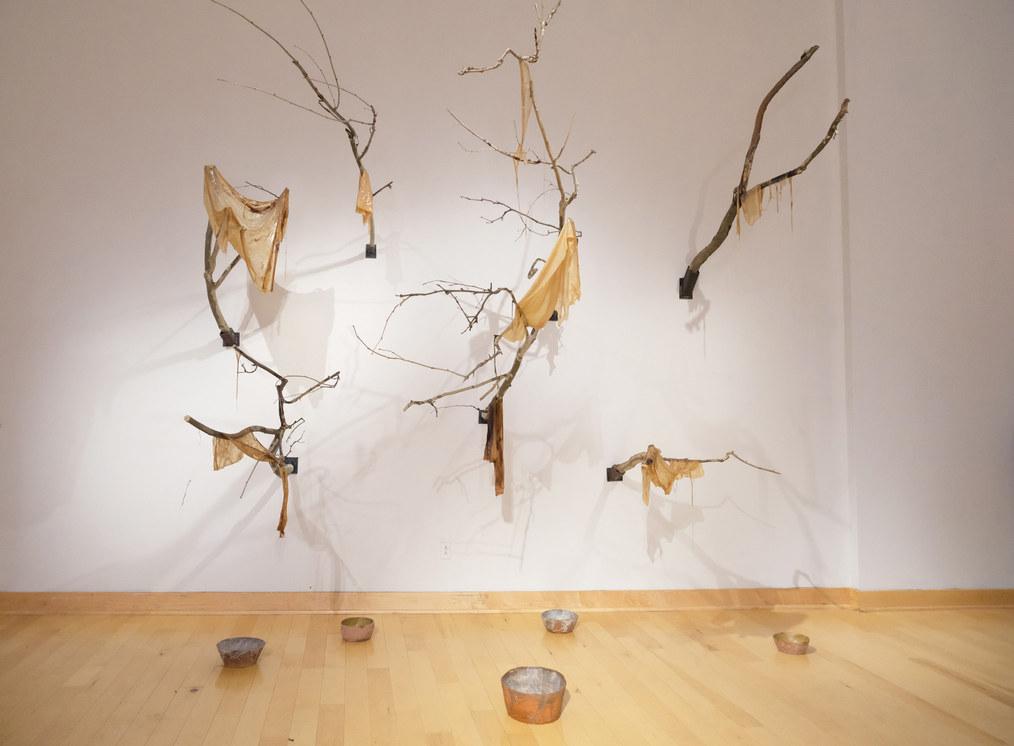
Inter is based on the material and poetic exploration of symbiotic colonies of bacteria and yeast (scoby), also known as a pellicle, that form while making a fermented tea, or kombucha. The jelly-like pellicle consists of a combination of cellulose, proteins, and the polymers formed through the growth of bacteria and yeast. I use these pellicles mostly unaltered, but drape them, still wet, over sycamore branches attached to the gallery wall. The scoby dehydrates, changes, and transforms over the course of the exhibition.
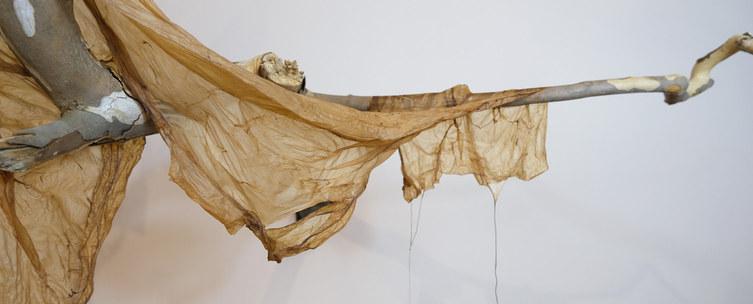
The dried SCOBYs function as my body at various levels. First, and most direct, the pale pinkish color of the pellicle is a mimetic approximation of my white bodied skin. Second, the cultures are all grown from the mother culture that I use to make Kombucha that I drink at home. The microbiome that makes up the dried scobys, then, is related to my own microbiome, and is therefore related to me. Third, there is the inherent relationship built through the maintenance of a vat of Kombucha. Fourth, there is the proximity to skin. In the accompanying video piece, New Body, I filmed myself drying a sheet of SCOBY across my chest and shoulders, gesturing at an attempt toward letting it become a new skin, or trying to grow new skin. The embodied exploration is directly related to gender and transition while at the same time the whiteness that mediates it. As I explore learning what embodiment means as I am transitioning, I bump against the edges of what is possible. In experimenting with growing a new skin, I am playing with immediate transition, as well as modular, wearable, adjustable, removable. If the skin is not exactly mapped onto human gender, it can also relate to my interest in undermining hierarchies of being. At the same time, the pink squishy pellicle foregrounds the whiteness of my skin, the way that gender is always racialized.
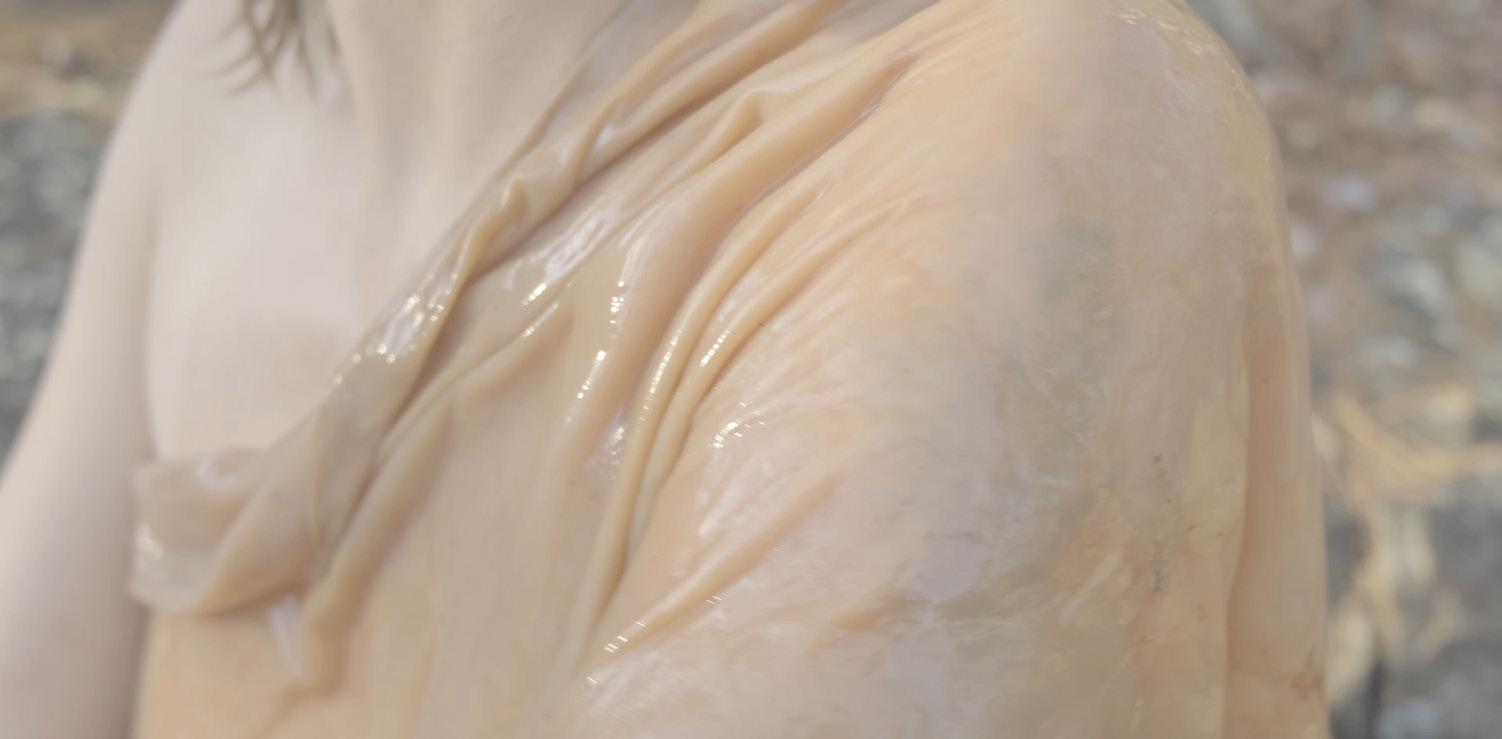

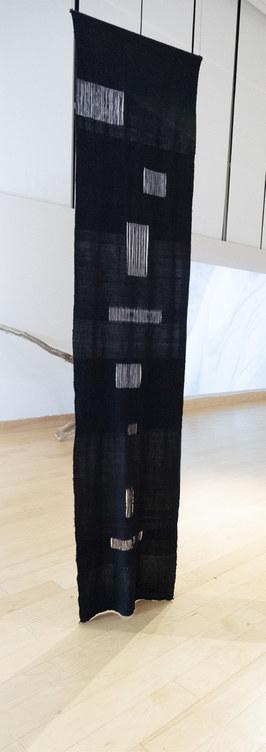



“Heresy became a sexual rather than a doctrinal concept; to say a man was a heretic was to say that he was a homosexual and vice versa.” Arthur Evans
The series For, Of Them is made up of hand-woven textiles in black cotton, rayon, and wool thread. The textiles range in dimensions and are huddled together in a circle so that the audience can step inside to what becomes a portal, a room, a vessel, a body cavity.
Throughout the length of each textile is a series of unwoven rectangles where the bare warp shows through. Each piece is based on individual records kept of the financial costs associated with witch trials in early modern Europe, and is paired with a copy of Rossell Robbins’ Encyclopedia of Witchcraft and Demonology, open to the entry, “cost of witch trials.” As I was reading about the witch trials as connected to a struggle of land, body, and magic, I came across the records referenced in the entry. In reading these tables, I felt the horror at an embodied register different from the experience of reading Federici’s analysis, faced with the more direct affect of the archive. These documents recorded the lists of materials in persecution, and the honorariums and salaries of the persecutors. To process, and in an oblique attempt to share, I chose to embed the information of the chart into a cloth. The information is embedded into the cloth by visualizing the square area of different line items; unwoven holes in the fabric are a visualization of different amounts of money made off each item of persecution.
At the same time, these events and systems are not just historic. During the witch trials, the persecutions functioned as a way of social control of women and women’s bodies. Midwives, healers, and herbalists were persecuted. The reproductive care they offered was ended, and the commons from which they harvested medicinal herbs was enclosed, and with the enclosure of land came the enclosure of social relations. Magical practices were persecuted as an ontological threat to the orderliness of the new capitalist system. During the same time period, and in the centuries prior, people who would now be called trans, gender nonconforming, or queer were also persecuted under the banner of witchcraft. The connection was so strong that the word heretic became synonymous with homosexual.
Lost, remain, fracture is a series of clay sculptures made by weaving pieces on a small floor loom, dipping them in clay slip, forming them as much as possible given the constraints of the material, and firing them so that the woven fibers burn out in the kiln. The process combines two of my material interests, clay, and fibers. I’m drawn to both media that are situated in culture and history as functional and expressive objects that, in working with them, connect me to a lineage of makers. Both media to me also connote my body– in fibers, especially woven cloth, the material is pliable, soft, able to be a mimetic link to skin, while the structure of all ceramics mirrors bones, and clay can be used to help with mending bone. The pieces are arranged in an altar– one that is like my body, like other bodies, and like the body of the land.
The inherent aliveness of the pieces is deeply significant in working with them. In the year plus since I started making the first experiments in what became the Lost, remain, fracture series, I have experimented with a myriad of ways to arrange the pieces. I have felt that in combining and recombining the pieces that they have spoken to me, whispering “no” or “yes” in how they live in a space. They are a tool for exploring Mel Chen’s living/dead animacy hierarchy, and a site for inviting in magic in the way they speak. The process of weaving, as I explored in the last section, is an inherently animist project of touching and being touched back. These pieces exist for me as a portal of connection, drawing invisible lines between themselves and my body, radiating outward. In the final installation I arrange them in the living medium of soil, collected from the farm where I work, in an altar.



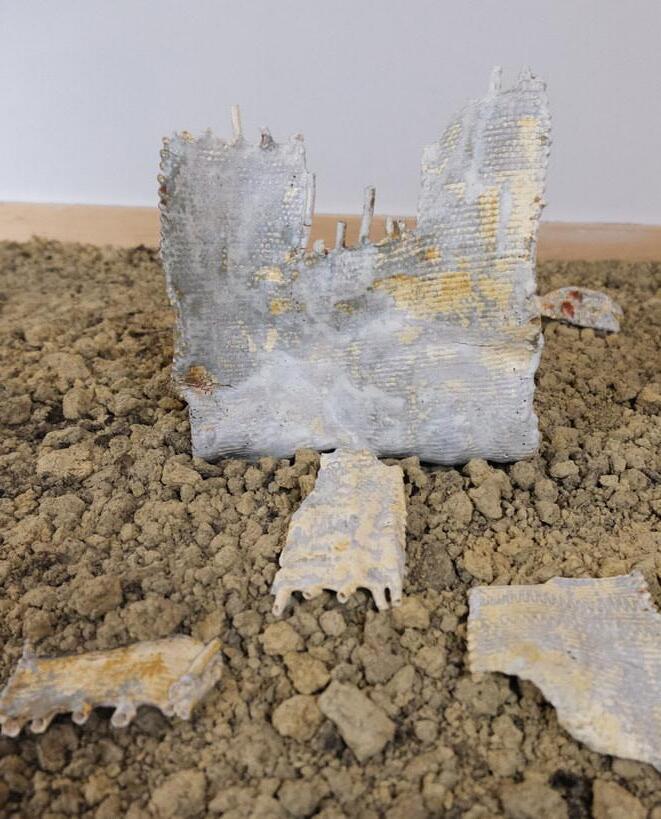
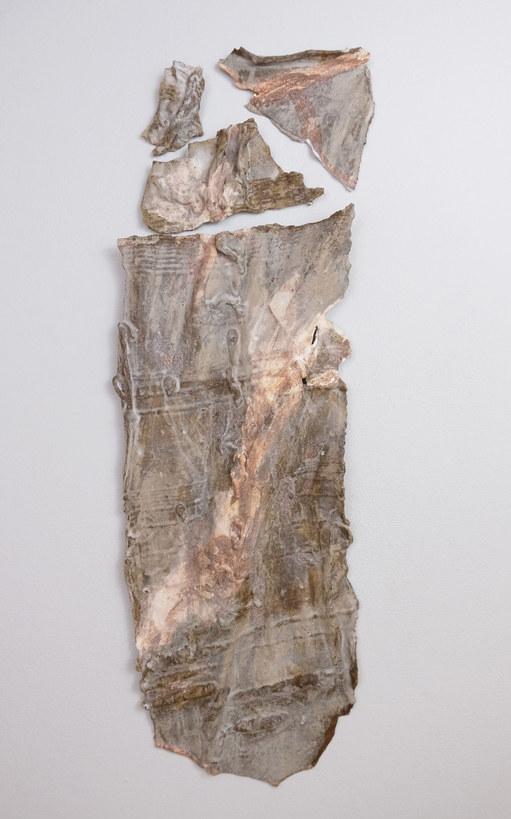
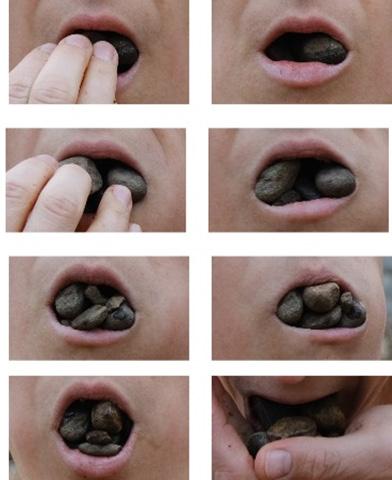
I see a nice stone and I want to put in my mouth; in late Old English hunger is desire with longing. I thought if I could eat rocks can I be less of myself and more of myself. I could follow the clarion of the slipclickclack of the rocks; slick, slipping, stumbling to the knowing intimacy of being a rock. Eating is desire but also rejection; I can’t eat the rocks, I can’t ingest them; the coldwet surface as I stuff my warmwet mouth full says: THIS IS WHERE YOU END THIS IS WHERE I BEGIN. WE CAN BE NEAR WE ARE NOT THE SAME. I put my body and focus to allowing for the lack of understanding; respect, solidary, and distance. Against a forced relationality


I lie on a large rock whose gravity pulls me into it. I lie at the edges of listening to the lichen grow and the shape my body takes, and the incommensurability, the distance and sacredness of not knowing. Magic is the art of changing consciousness at will. The art of changing matter at will. I want to let my body learn from the rocks uphill from Rawley Springs and I also want to change my body and I want you to know that the T and the sediment are related.

My partner tells me a story about an image of a rock cracking. Water pours out of the cracks. Imagine the pressure of fracturing: where the rock loses cohesion along the weakest plane. Mode I crack – Opening mode, Mode II crack – Sliding mode, Mode III crack – Tearing mode. I can study fractures, let the math of compression and tension be a map. Fracturing systems through perpendicular pressure, with no recuperative focus on the generative.



Thesis committee: Greg Stewart, chair, Dymphna DeWild, Beth Hinderliter, P.hD.


The pain and joy of braiding- the physical discomfort of hair being pulled, the bonding of someone braiding your hair (maybe by a friend at a sleepover, or by a mother before school), the pain in the careful preparation of gender. This game takes all of this and translates it into an aptitude test modeled after carnival strength measuring machines. The words in this piece are imbedded with strong queer connotations. At the very top, sits ‘Genuis’ the epitome of a valued member of society, especially in art. All of these terms utilize reappropriated language from the ruling class’s definition of freak, and applies it to a reward system. In participating in the social gesture of braiding, you receive a label and, in turn, a cohort and almost a re-gendering. In this piece, skill is redefined as well as the social order of what it means to be of value. All of this takes place in between a cathedral of bed posts, calling forth a sacredness in the “bedroom’ where these queer acts that have been deemed inappropriate and filthy’ take place. This is a celebratory alter for societal ‘filth’.



This piece consists of salvaged wicker chairs, rewoven with the ribbons of medals from me and my brothers. 3 chairs stitched together form a communal watching area where a group may rest among an array of nostalgic objects. Directly in front of them is a dresser decorated by a group of elementary school kids- a typically frowned upon act of claiming ownership and agency over domestic space and furniture. Behind the dresser is a gaudy wallpaper patterned with the design of an old T-shirt (that is also framed on the wall)- clothing also being a large indicator of autonomy in childhood (or lack thereof) and or compulsory exaggerated gendered aesthetics that are in some cases treasured and, in some cases, detested.
Within the dresser is a small television playing a live feed of an animation disc that is spun by a pedaling participant on the other side of the wall. There are numerous discs that can be inserted into the spinning mechanism that has been constructed out of a knitting machine. Each disc is traced from frames of home videos that demonstrate progressions over the years of various physical skills, from mundane to highly practiced, acting as a sort of cabaret of aging.

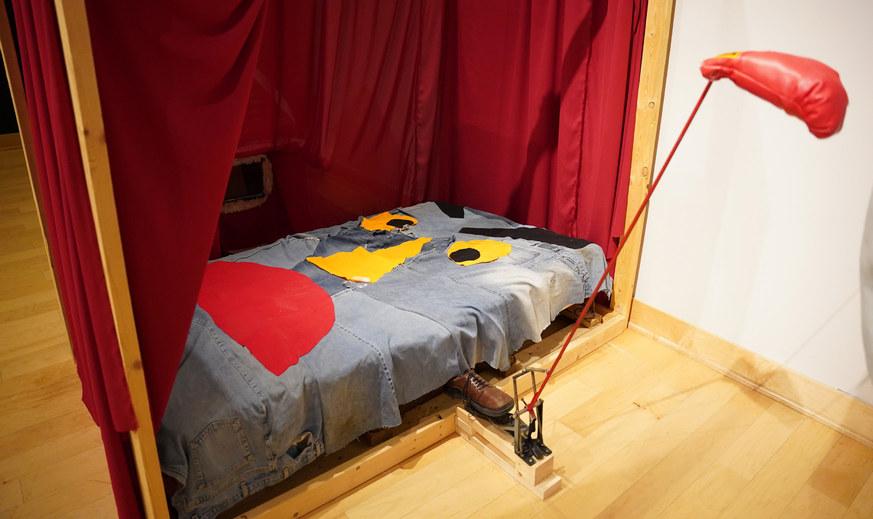
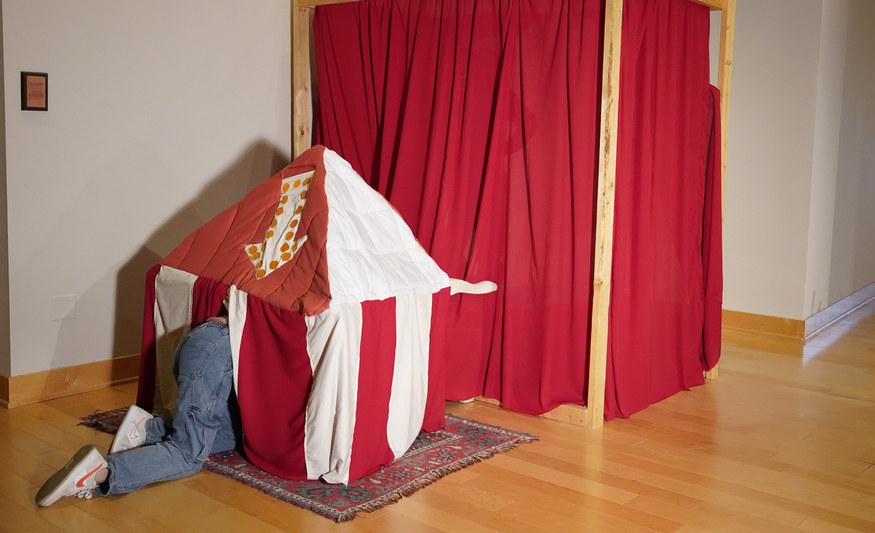

This piece is arranged almost as a ‘Freak Show’ where participants can act either as a viewer, or as the viewed. You can crawl into the child-sized circus tent and sit comfortably on the floor and watch, muffled by a TV screen. A second participant is invited to enter the stage-like area, where a twin bed is surrounded by red curtains. The motions of jumping on this bed- one that has been modified to function as a springboard can elicit memories of jumping on a bed as a kid, innocuously disobeying rules, or of the squeaking of beds during sexual acts. This teetering between child-like and sexual, filthy and innocent, curious and perverted, embodies, for me, the sort of queerness in kid friendships that can be filled with such passionate love, and the occasional natural urge to practice and explore bodies before you even know what that means. This all culminates in a contraption that punches a pillow. This pillow is modeled after an “angry pillow” that my mom made for my older brother to punch as a kid to try and satiate his young rage. I look back at this as such a sweet, tender moment of cultivating our most basic needs through this handmade creation.
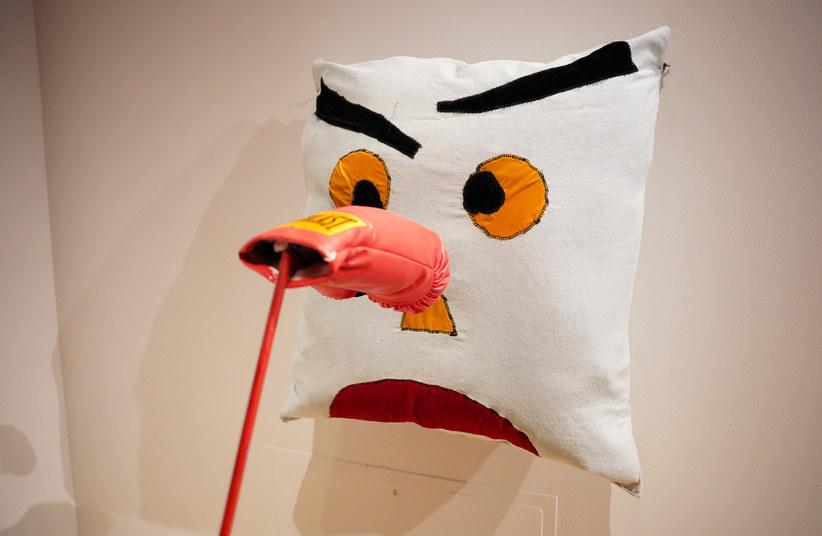
I’d call my mom back to my room often, 10 pm rolling around, asking her to do the song one more time. We’d clap hands and sing
“My little playmate
Come out and play with me
And bring your dollies three

Climb up my apple tree
Slide down my rain barrel
Into my cellar door
And we will be best friends
Forever more more more”
Something about this picturesque friendship filled me with melancholy, even at a young age. I’d keep asking to repeat this ritual over and over as a desperate attempt to embody this relationship. This feels like where my tendencies towards obsession began- was this the first time I “shipped” something?- the first inkling of yearning for this adventurous friendship to be queer- and for it to happen to me?
I embroider these words onto the tires of dismembered bicycles. Bicycles of kids who may have once ridden them with friends down a street they weren’t supposed to be on- kicked out of the house by parents who romanticize and necessitate an active an outdoorsy childhood. This piece is filled with the romantic, the ideal. By far the smallest and most time consuming, repetitive piece in this exhibition.
STUCK PHILOSOPHICALLY SOMEWHERE BETWEEN 'THE ULTIMATE MELANCHOLY IS TO LOSE DESIRE ITSELF' AND 'DESIRE IS THE ROOT OF ALL SUFFERING'

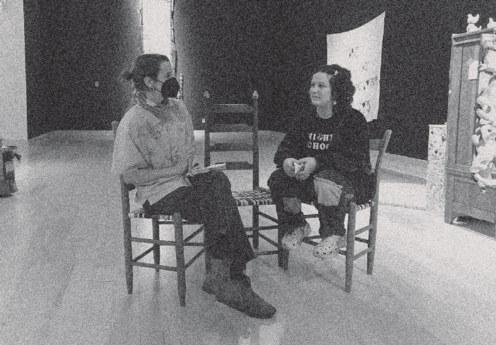

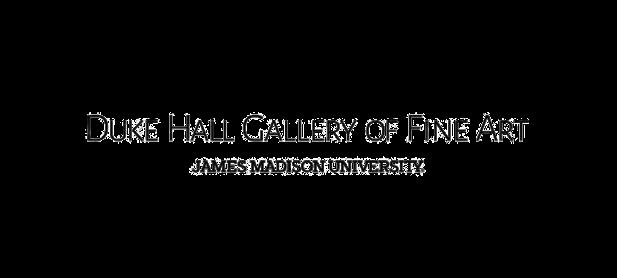
 James
James